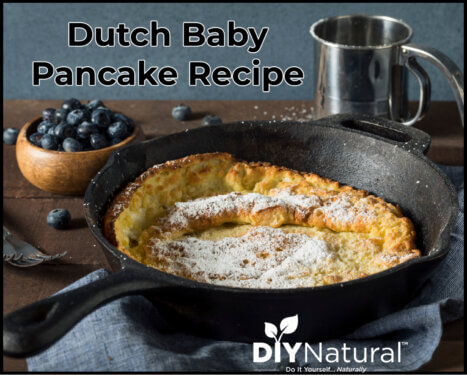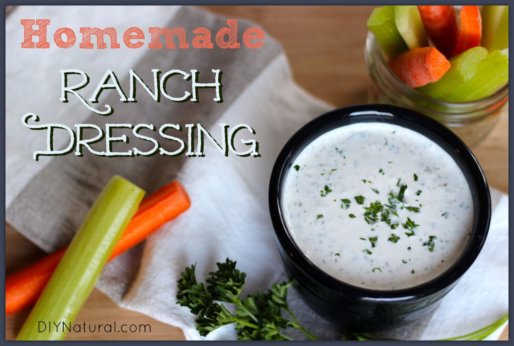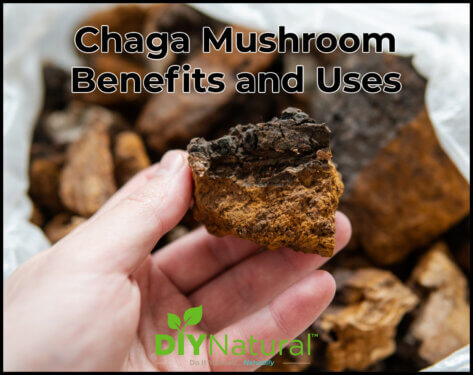Have you heard of this wonder-sweetener? I couldn’t figure out why Matt was buying a $7 bag of this stuff several months ago until I started hearing about all of its benefits. I decided it was time for me to do some of my own research if I wanted to start including xylitol in any of our DIY recipes. I was NOT disappointed in what I found out about this sugar substitute, and think you will be interested to know what I discovered. (Sorry for giving you grief Matt, the $7 was totally justifiable!)
The Scoop on Xylitol
This natural sweetener is actually a sugar alcohol found in many fruits, vegetables and plants. It is even produced naturally by the human body in small amounts every day. Xylitol is the same texture, color and taste as table sugar, but has far less calories and none of the negative tooth decay or insulin release effects of sugar.
Xylitol is interchangeable with sugar for baking purposes except where sugar is needed for yeast to rise. Sprinkle it on your cereal, use it in coffee and tea, and bake your favorite cookies using this low-calorie sweetener.
Not Your Grandma’s Sweetener
Xylitol is not just a sugar substitute, but a sweetener that actually PROMOTES health. Xylitol has been studied around the world for more than 40 years and has been shown to have many benefits.
Research supports the use of xylitol to prevent tooth decay and cavities. The icky bacteria and yeast in the mouth can’t metabolize xylitol – as they do sugar – so they aren’t able to create the lactic acid that attacks our teeth. Therefore, fewer of these decay-causing bacteria rest on the tooth’s surface over time, leading to less plaque formation and less cavities. Not only does xylitol starve bacteria in your mouth, but it enhances mineral absorption to actually strengthen your teeth. Ummm…more xylitol please!
Another great benefit of xylitol is that it may help regulate blood sugar levels for people with Type 2 diabetes. The body doesn’t metabolize sugar alcohols as sugar, so xylitol has no impact on insulin. This is great news for diabetics!
There is also some research on the link between xylitol products and decreased ear infections in children, and also on improved upper respiratory health with the use of certain xylitol products.
You Should Also Know…
Look for xylitol to be the first ingredient or at least the only sweetener in products in order to get the full benefits. (Some of my findings indicated that xylitol’s benefits were diminished when mixed with other sweeteners.) A total of 5 grams per day is suggested for optimal benefit. Getting too much xylitol can lead to bloating, gas, and upset stomach.
The only really serious caution I found was that xylitol can be extremely toxic to dogs. Keeping man’s best friend in mind, it is best to keep any xylitol products or items sweetened with xylitol in a place where dogs will not be sniffing around for goodies.
I also found out that most xylitol is corn derived, so look for non-GMO xylitol if you are purchasing it in granular form.
Where to Find Xylitol
Xylitol products are popping up all over the place. In addition to its use as a sweetener, it can also be found in nasal sprays, chewing gum, toothpaste, mouthwash, and other natural products sold in health food stores. Bags of the sweetener are available in health food stores, some national chain grocery stores, and can also be purchased online.
I have been sweetening my homemade mouthwash and toothpaste with xylitol for the past several weeks now, and can rest in the fact that I’m actually benefiting my oral health by sweetening these products. BONUS!
I officially count xylitol as a MEGA upgrade over table sugar and high-fructose corn syrup. My recent findings mad me wonder…when will they start serving this awesome stuff in little pink packets on the table in restaurants?
What xylitol products do you use in your household? Share your experience in the comments below!
****



In regard to the above nay-sayer, that is NOT how Xylitol is produced. I can sum it up in a sentence, not the multitude of paragraphs they had to use:
Xylitol is produced by hydrogenation of xylose, which converts the sugar (an aldehyde) into a primary alcohol.
Most sugar alcohols cause laxation. In regard to Stevia being used as a sweetener you MUST be careful since it takes a percentage of a percentage of Stevia vs. other sweeteners, and Stevia still has that OFF taste, unlike Xylitol.
Thanks for this Melissa!
Is there any way one can substitute stevia leaf in place of xylitol?
Yes, just be sure to start slow because it takes way less stevia to sweeten.
Just be aware that Stevia is actually in the ragweed family (which I am horrendously allergic to). I went two months not being able to smell anything and feeling like junk. When I learned this, I went off of Stevia and all symptoms disappeared.
Can it build up to toxic levels in the body? I seem to have developed a sensitivity to it, get sores in mouth too. is very hard to find toothpaste without it in it. so this is why I came to your site- to find way to make natural toothpaste without xylitol in it.
Xylitol has no known toxicity to humans. There have been studies done where participants ingested high levels of xylitol for an extended period of time, and only some of the participants had some stomach sensitivity, which decreased over time as their bodies got used to it. Sores in your mouth are no fun, so you are smart to avoid xylitol if this is the effect it has on you. 🙂
I have used xylitol in my home for over a year. We put it on cream of wheat, bake with it. We use xylitol toothpaste and we love it. I also have a xylitol mouthwash. The only problem I encountered is that xylitol changes the texture of baked goods when I use it in recipes but otherwise all thumbs up – we love it. It’s good for our teeth and our health. My 5 year old loves it too.
We also use xylitol chewing gum.
Very cool! We love our xylitol toothpaste and mouthwash as well. 🙂
I work for a Dentist who practice natural dentistry. We offer 2 different products to help fight caries (decay). Epic by Ultradent and Cari Free. Both contain Xylitol and our patients have had great results with no complaints. The kits include gum, mouth rinse, mints and toothpaste. We have seen a great improvement with our patients using these products. They have reduced the bacteria in the mouths, therefore reducing the cavities. Xylitol promotes saliva which is needed to wash bacteria away. I’m a believer in Xylitol.
xylitol is HORRIBLE.
A search of patents online explains one process for making xylitol, tell me if this sounds healthy? You begin with some source material containing xylan. One commonly used source is corn imported from China.
1. First the xylan needs to be broken down in a process called acid hydrolyzing. The results of this process leave us with xylose and acetic acid. The process of hydrogenation is carried out at higher pressures and temperatures ranging from 158 degrees Fahrenheit and higher. Hydrogenation needs a catalyst, so a substance called Raney nickel can be used which is a powdered nickel-aluminium alloy.
2. The acetic acid needs to be removed as the material safety data sheet describes it as, “Very hazardous in case of skin contact (irritant), of eye contact (irritant), of ingestion, of inhalation. Hazardous in case of skin contact (corrosive, permeator), of eye contact (corrosive).”
3. Then the hydrolyzing acid and organic residues must be removed, this is done by heating the mixture and evaporating it.
4. The resulting syrup, now free of acetic acid, hydrolyzing acid, nick-aluminum and other residues.
5. The syrup is crystallized by stirring ethanol into it.
6. The crystalline xylitol is now separated in a centrifuge from the ethanol and from the sorbitol remaining in solution.
7. Viola, you have xylitol.
Health Claims
It is obvious to me, as it might be to you, that xylitol, in addition to killing bacteria, will probably kill just about anything. This clearly explains why it is only recommended to be used in small doses. Yet if you go to a health food store, you will see larger sized bags of xylitol on the shelf, promoting its many health uses.
Health Concerns
In lab tests, xylitol will kill a rat 50% of the time in a dosage of 16.5 grams of xylitol for every 1000 grams of rat. Medium rats weigh 100-120 grams, or say .25 pounds. That means, to kill a 100 gram rat, you need only to get the rat to consume, 1.65 grams of xylitol.
A typical xylitol piece of gum contains .7 – 1 gram of xylitol. About half the amount needed to kill a rat. I read of a study stating that humans consumed up to 400 grams of xylitol per day without any ill health effects. I find that hard to believe that such a study is accurate in comparison to the lab tests done as indicated on the material safety data sheets. If 1.65 grams can kill a rat, consuming 400 grams would be highly toxic to humans.
A more detailed look gives cause for even more concern, there seems to be no long term safety data about the long term health effects of regularly consuming xylitol.
http://www.naturalnews.com/022986.html
actual stevia extract is a much better choice. not stevia in the raw, or truvia etc, but pure stevia extract.
Thanks for the info Kati, we’re checking into all this. God bless.
Love it! I just wish it was not so expensive. However, since diabetes runs in my family, I’m trying to take the attitude that it’s cheaper than insulin shots will be in the future!
Hey- I am the only xylitol naysay-er I know, but I wanted to post that everytime I use a xylitol mouth product like toothpaste or gum, I get terrible sores in my mouth. I am allergic to birch trees (who knows???) so I am guessing that’s why I can’t handle xylitol. Anyway, if you have birch allergies, take it easy with the xylitol. And if you don’t, enjoy!
Wow, very interesting Amy. Thanks for the warning to our readers!
I put some on my oatmeal and it gave me the worst Diarrhea I have ever had. I call it fire-hose diarrhea! I wouldn’t touch that stuff again if you paid me!
I’ve used xylitol in my sinus irritations for years. I get much better congestion relief with it than without it.
very informative. i hear words like xylitol and turn off. i’m glad i stayed tuned in this time to such a weird word. i will infact go about trying to find some of this stuff.
cheers,
steph
I’ve been using Xylitol for several years. The brand I was using was made from vegetables and fruits and I recently found out the product came out of China. The label didn’t state non-GMO so I started looking for a better product and one that wasn’t so expensive.
In my research, I found that the Xylitol made in the U.S.A. is derived from birch trees. Though it is not stated on the label that it is non-GMO, I haven’t heard of any genetic engineering on trees (yet), so I have switched to the U.S.A. made product. I now purchase my Xylitol from Nuts Online. The more you buy the cheaper the price. My last purchase was 25 lbs. to get the best price. That’s enough to fit in a 5 gallon bucket.
Thanks for the awesome information Vicky! I’ll have to look into Nuts Online. We, too, are interested in buying American-made, so this is good to know.
You’re welcome. I emailed Nuts Online to ask specifically where their Xylitol comes from and was told U.S.A. They’re very friendly and informative. They also carry organic nuts, flours, etc., with the usual sugar infested goodies.
We use it in our homemade toothpaste, in our smoothies, as a sweetener for plain yogurt, hot drinks…lots of things! We LOVE it!!!
The only product I’ve ever used that has Xylitol in it is gum. I cannot consume any artificial sweeteners (they give me a terrible headache and mess my stomach up pretty good) which in turn means I cannot consume 99% of gums. I’ve always been a gum chewer and was so excited when I found Xylitol sweetened gum at a local organic market.
I have been toying with the idea of baking with Xylitol, but with how expensive it is I haven’t taken that plunge yet. (regular sugar doesn’t bother me, except for those pesky calories!) I honestly didn’t realize the heath benefits to Xylitol though!